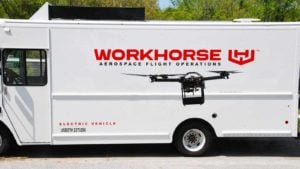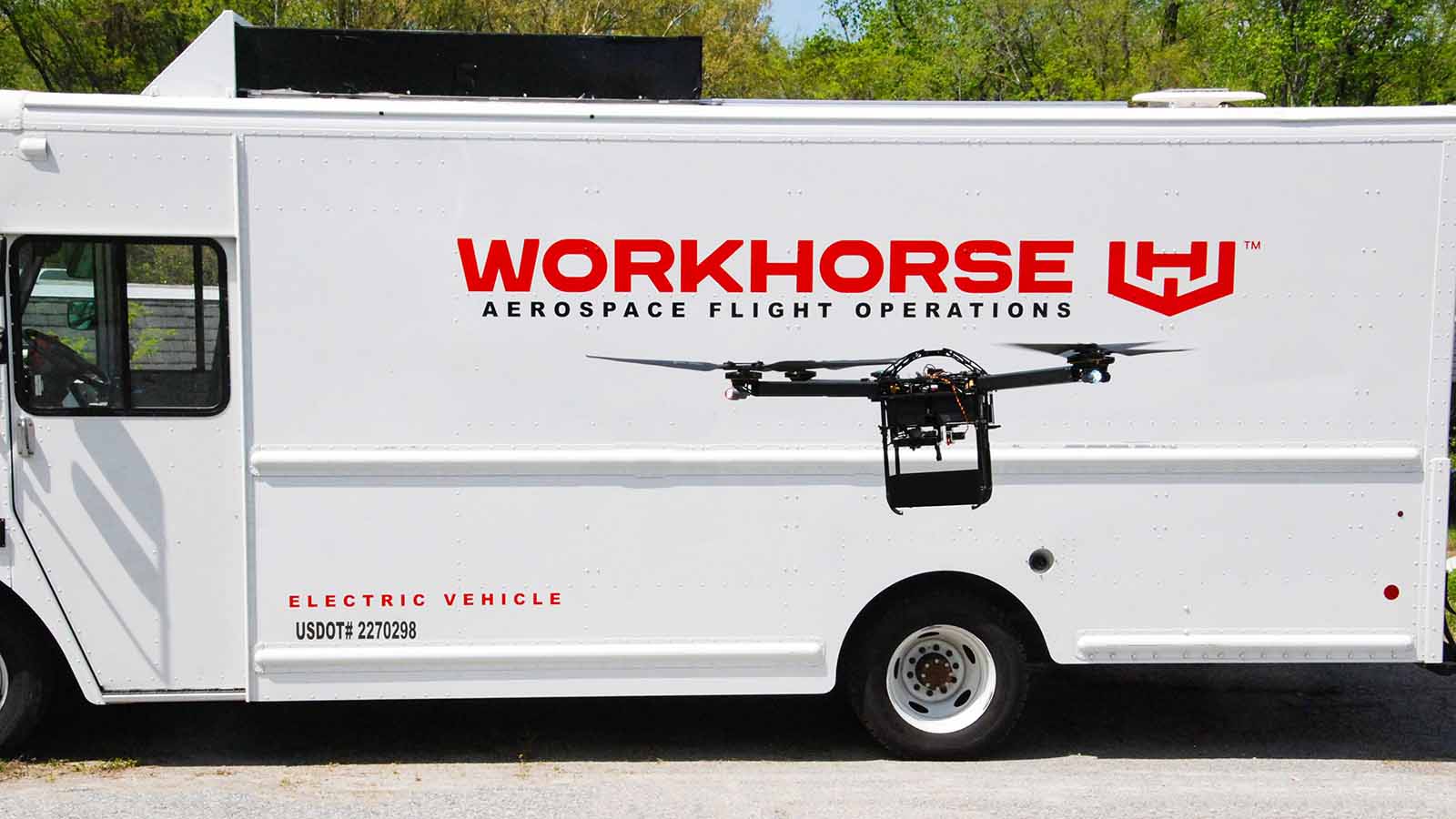The market can’t seem to get enough of electric-vehicle companies like Workhorse Group (NASDAQ:WKHS) and investor interest in WKHS stock remains high.

Buoyed by the success of Elon Musk, others in the auto industry are working to deliver battery-powered cars and trucks that will take ground transport to new frontiers of environmental impact and utility.
Musk’s Tesla (NASDAQ:TSLA), has clearly demonstrated that consumers are willing to pay a premium for vehicles that look cool and perform well. And Musk’s automotive success has come despite some hiccups along the way and the fact that recharging stations are not universally available.
The Workhorse Path
Tesla is known best for its cars and SUVs. Workhorse has targeted a different segment by trying to tap into America’s hefty appetite for commercial vehicles. Generally, this means pickup trucks, vans and such.
Workhorse’s family tree is rooted in Ohio and General Motors (NYSE:GM). Specifically, two chassis that GM developed to support step vans and motor homes. Workhorse Custom Chassis was formed around 1998 for this venture making traditionally powered vehicles. Two owners and some 15 years later, we have Workhorse Group, which has zeroed in on electric-powered delivery vans.
Workhorse also has a 10% ownership share of Lordstown Motors, which makes electric-powered pickup trucks (the Endurance) at a former GM assembly plant. In addition to Workhorse’s 10% stake, Lordstown is licensing Workhorse’s intellectual property for the project.
The last year has been quite a roller-coaster ride for WKHS stock. Its 52-week low was a rather paltry $1.32 share. Paltry, indeed, when compared to the 52-week high of $30.99, which was reached only this month. It’s been a hot summer for shares of WKHS stock.
Company Performance
Workhorse is making vehicles and starting to deliver them.
In the company’s second-quarter earnings report on Aug. 10, it said three electric vans were produced and delivered in July to Ryder (NYSE:R), the massive truck leasing firm.
Also, the company reported an order for 20 vehicles, which also came in July.
Although it is starting to make vehicles, the company is not making a profit, Workhorse reported a $131 million loss during the quarter, compared to $20.1 million during the same period in 2019. CFO Steve Schrader blamed the increase on “convertible note and the mark-to-market adjustment” of debt and the share price hike in the quarter.
The operating loss last quarter was about $7 million, compared to $4.1 million in Q2 2019, Schrader also said.
Workhorse reiterated that the company will produce 300 to 400 vehicles this year.
Outlook for WKHS Stock
After rapidly soaring to the $30s, WKHS stock has settled recently and is trading around $27. Despite enthusiasm for the company, the market was not willing to sustain the higher figure.
The future for the company’s shares will largely depend on whether Workhorse can really deliver – both dependable electric vehicles and more sales.
One of these potential sales would be to the U.S. Postal Service, which reportedly is looking to replace is fleet of 165,000 vehicles. That contract could be worth $6.3 billion. It appears that electric vehicles would be a good fit for this, but Workhorse is not the only company vying for this contract. Investors will have to wait and see.
Meanwhile, Workhorse’s connection with Lordstown looks ripe as a separate source of income. Lordstown managers said recently the company has 27,000 pre-orders for its trucks.
My InvestorPlace colleague Faisal Humayun writes in an article this month that Lordstown has the capacity to build 600,000 electric trucks per year.
“Therefore, once production commences in FY2021, the stake can itself be a game-changer for [Workhorse],” Humayun says.
The Bottom Line
Workhorse Group is positioned to be a player in the specialty “last-mile” of commercial deliveries and investors are taking notice.
There’s plenty of risk going along for the ride, which is to be expected with cutting-edge ventures. But there’s also plenty to like, including a proven chassis and progress in the development of the batteries essential for electric vehicles to be useful.
Moreover, Workhorse has another revenue stream from Lordstown Motors, developer of electric pickup trucks. Workhorse holds a 10% stake in Lordstown as well as ongoing licensing agreements.
WKHS stock seems to be fairly priced for now, but a dip would be an excellent time to buy.
On the date of publication, Larry Sullivan did not have (either directly or indirectly) any positions in any of the securities mentioned in this article.
Larry Sullivan is a veteran journalist in Florida who has covered banking and finance for several years. He is a former investing editor at U.S. News & World Report in Washington D.C.
